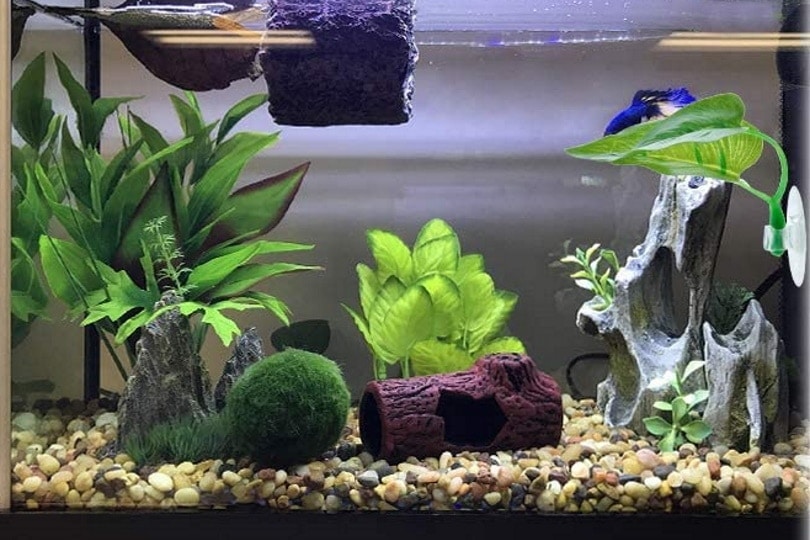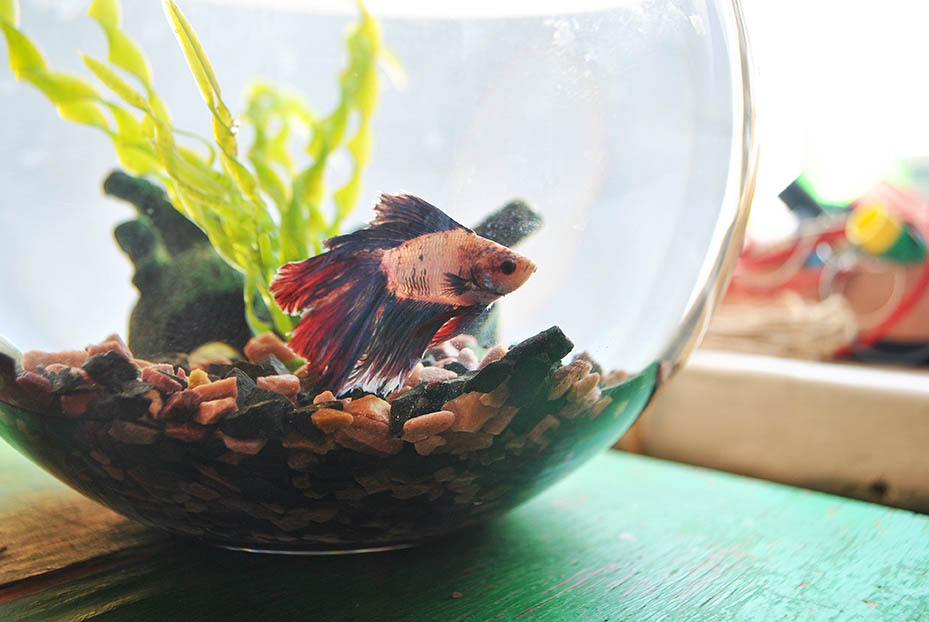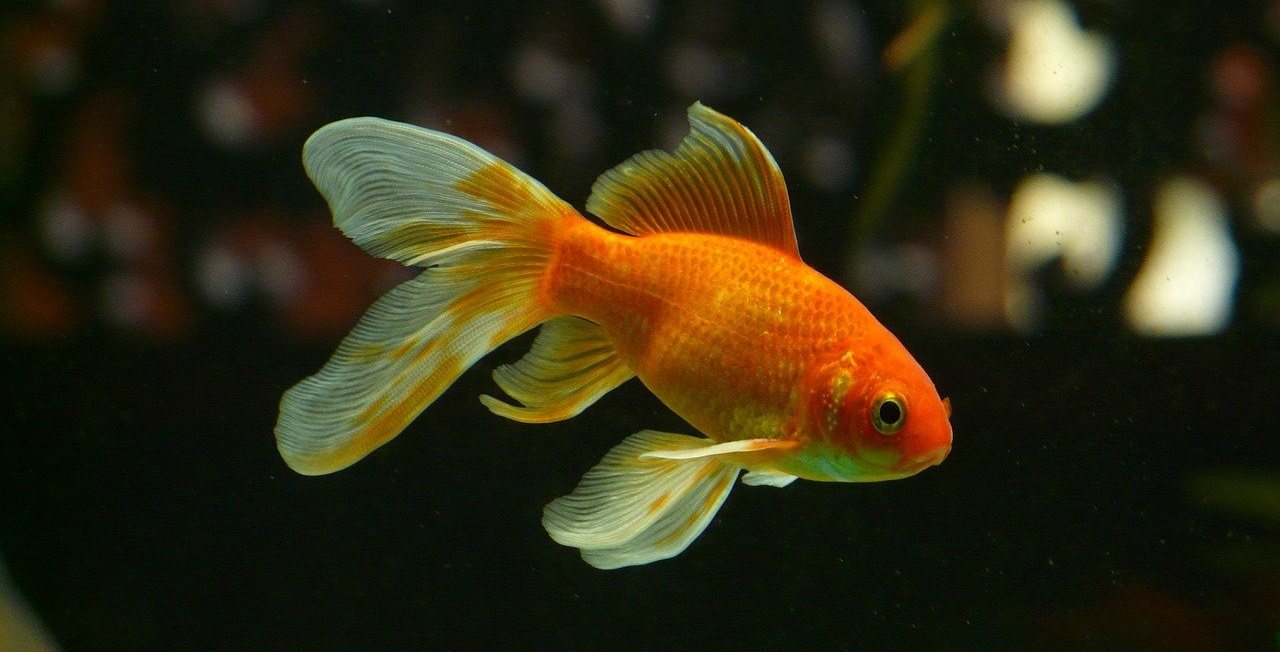Is Your Betta Fish is Dying of Old Age? 12 Vet-Reviewed Signs & Care Tips
Updated on
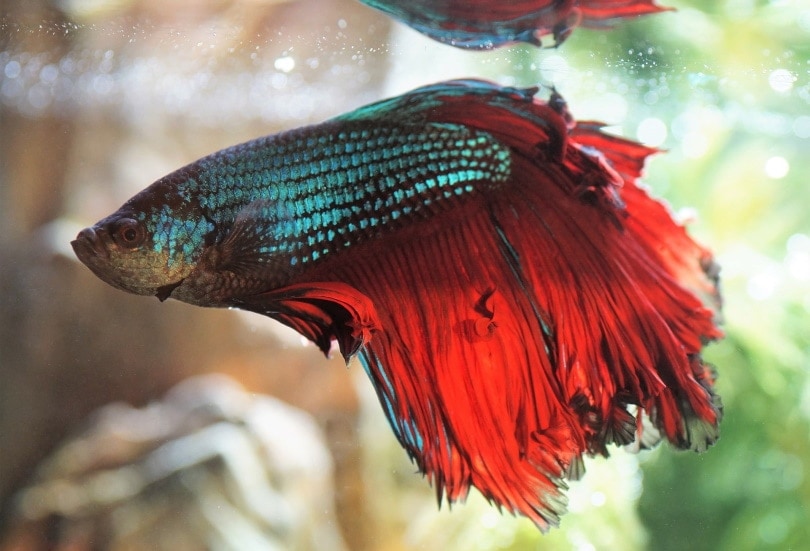
Click to Skip Ahead
No one wants to think about the loss of their pet. It’s absolutely the most difficult part of bringing a betta into your home. All of your care has paid off, and you’ve enjoyed watching your fish live well into old age. But now you’re wondering what some of the signs are when a betta is officially a senior.
Though the loss of a pet is definitely painful, caring for your betta till they reach their senior years is something you should be very proud of. Advancements in veterinary care and pet care knowledge are allowing bettas to live longer, with some individuals living up to 10 years!
In this article, we’ve pulled together 12 common signs when an aging betta can officially be considered a senior. Keep in mind that these signs should be gradual over several months, and an old betta won’t necessarily exhibit all of these signs at once, as the aging process itself is gradual and not sudden.
The 12 Common Signs a Betta is Old
1. Behavioral Changes
Bettas are known for their curiosity and interest in their humans, and especially their wiggle dance! When they grow older, the betta will stop a lot of these activities. Flaring will lessen, and they’ll become much less aggressive, particularly since they are also past their breeding years.
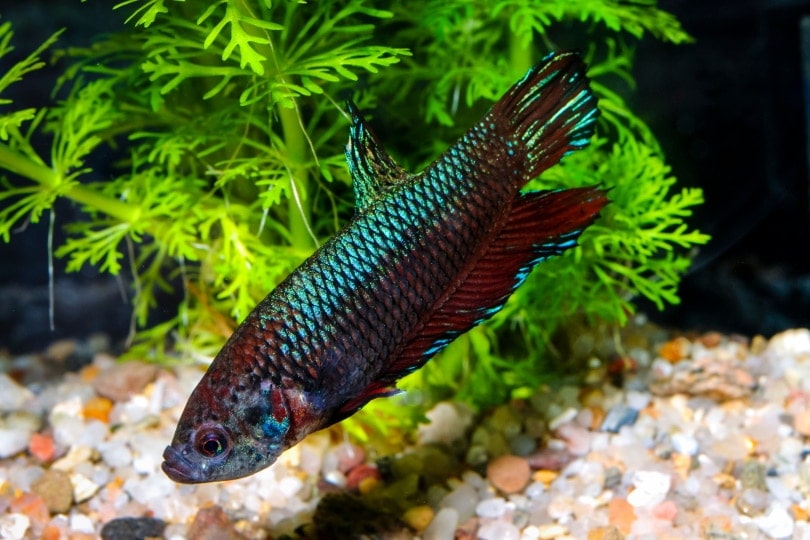
2. Sleeping Pattern Changes
As your betta ages, you may notice they sleep more frequently, and for longer durations.
The sleeping habits of bettas are unique to each individual and you may find your betta sleeping in different areas of the tank or in different positions. Bettas have been observed sleeping on tank floors, floating in the middle, or at the surface. They may even sleep on their side, upside down, with their nose pointing up, or their tail pointing up! Your fish may even curl up or wedge between tight spaces during nap time.
3. Deteriorating Fins
An older betta will start to lose its beautiful fins and tail. They will become ragged and frayed, and the ends might begin to curl in.
4. Faded Colors
Your old betta might still be colorful, but those colors will be much more faded as compared to when it was young. In some cases, the color might even start to turn more of a brownish color.
5. Lethargy
This is one of the more common signs of an old betta. Young bettas are typically quite energetic and active and enjoy exploring their environment. You might find that the aging betta will spend more time swimming around with lower energy levels. As mentioned before, they will also seem to sleep more than they used to.
6. No Bubble Nests
This sign doesn’t work if your betta doesn’t usually make bubble nests, but if your male does make bubble nests occasionally, this behavior will stop. An older betta will lose interest in breeding and just won’t build a bubble nest in the hopes of mating with a female anymore. You will not notice this change in a female betta, as nest building is a trait associated with male bettas.
7. Decreased Appetite/Weight Loss
A loss in appetite is pretty normal for an older betta. Their metabolism slows down, so they don’t need as much food to maintain the kind of energy they required when young. This may or may not contribute to a skinnier betta. Some bettas might lose weight even if their appetite stays the same.
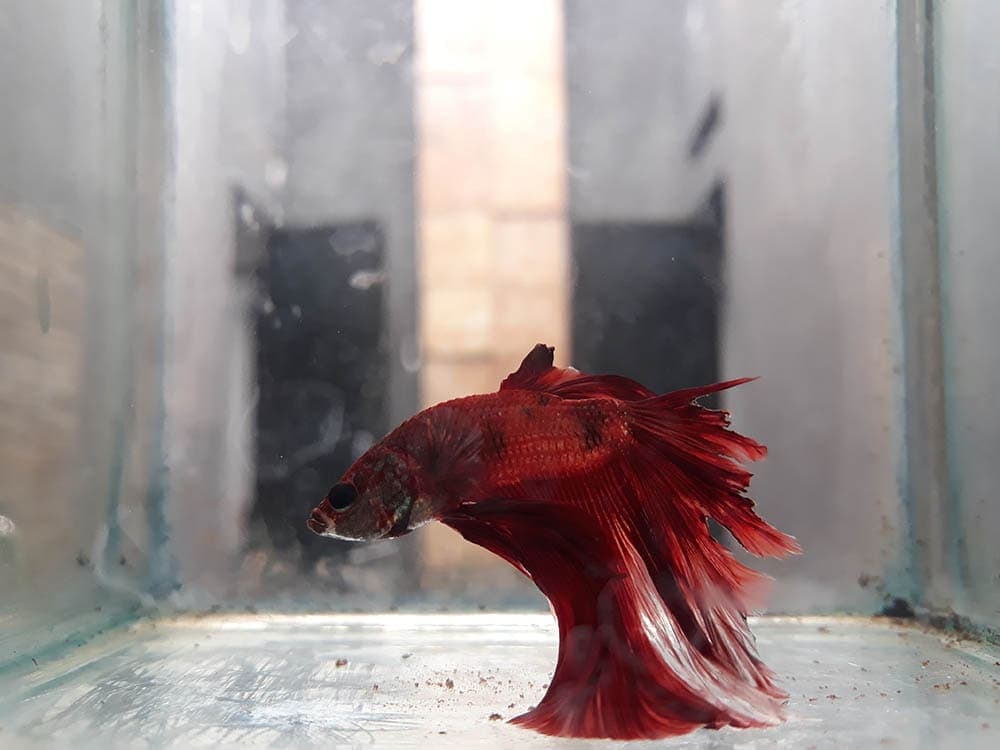
8. Losing Eyesight
You might notice that your betta’s eyesight has started to go. Many aging bettas will miss their food when going after it, and they will have difficulty seeing activity outside of their tanks. You might even notice a white film covering their eyes, which is cataracts, common in aging humans as well.
9. Losing Scales
You might notice the scales on your betta becoming more prominent, and they might start to lose them as well. This is fairly normal for an aging betta.
10. Hunched Back
This is another physical sign of an older betta. A kind of hump will appear gradually on their backs. It might just be a slight hump or a rather noticeable one.
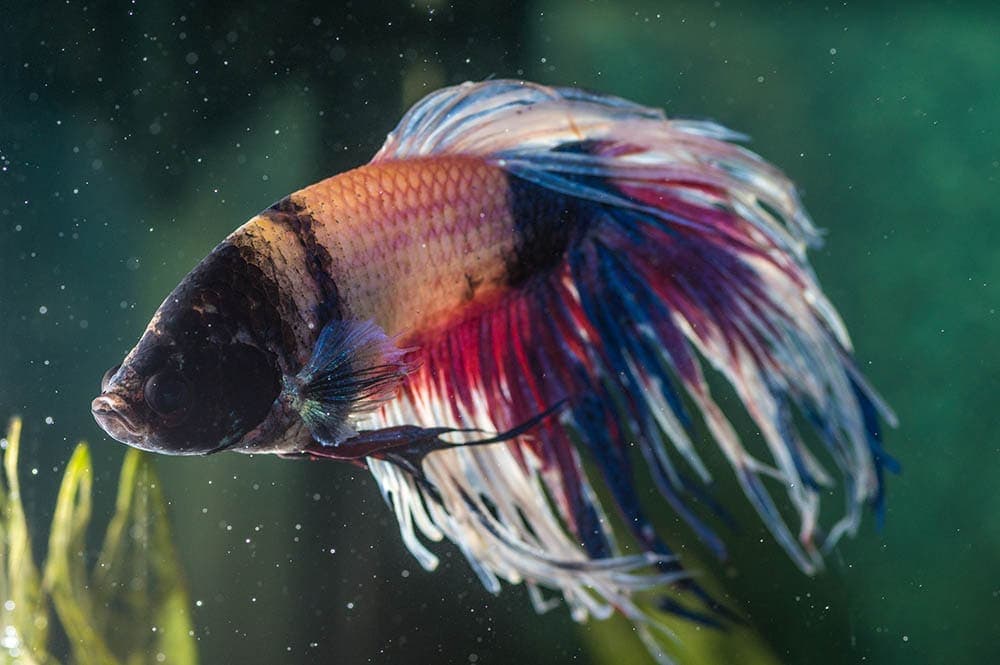
11. Lower Aggression
This is something that might be harder to detect as it will happen gradually. A particularly feisty betta may slowly become less aggressive as they enter their senior years.
12. Slower Reactions
Again, because of the lower metabolism (and it doesn’t help if they also have failing eyesight), older bettas will also start to swim slower. They might also take longer to react to situations or to reach their food.
Taking Care of Your Aging Betta
If your betta is indeed aging, there are some changes you can make that will help to make your betta more comfortable in their senior years.
1. Turn Up the Temperature
With slower movements as well as a slower metabolism, it will help your betta if you turn the heat up just a little. Set your heater for a temperature of around 81° F to 82° F (just over 27°C). This will keep them warmer, especially at times when they are napping, and consequently, will make them less susceptible to illness.
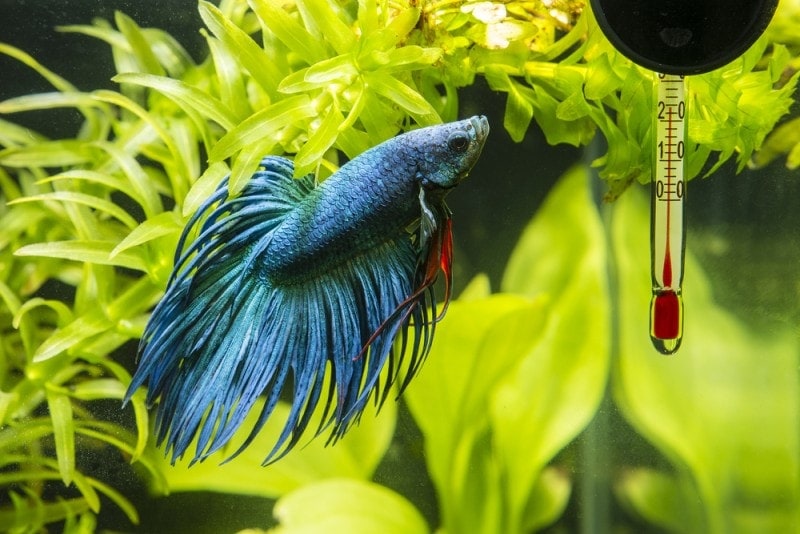
2. Change the Food
This is only necessary if your betta has lost his eyesight and is having trouble finding his food. You can try wiggling the food near them to help attract their attention. However, if this doesn’t work, you can provide them with “wet” food, such as thawed brine shrimp and bloodworms. They will be able to find this food by scent.
3. Add Extra Plants
We’ve established that old bettas tend to take long naps. Plants are a fantastic addition to their tank, as they offer additional napping spots. If you’re opting for artificial plants, ensure they are soft enough to not tear your betta’s fins. Gently moving a small piece of silk fabric around the plant is a good idea; if the fabric snags anywhere along the plant, it’s likely too sharp for your betta too.
If you’re going with live plants, ensure you quarantine them for at least 6–8 weeks before adding them to your betta’s tank. Tiny critters such as snails might be hidden among live plants. Though they’re not an immediate threat to your betta, they may harbor pathogens that could prove problematic for your senior betta.
It would also be very beneficial for your betta if you place a number of taller plants in your aquarium so your betta can take shelter closer to the surface. This can also allow your fish to grab a quick breath much easier.
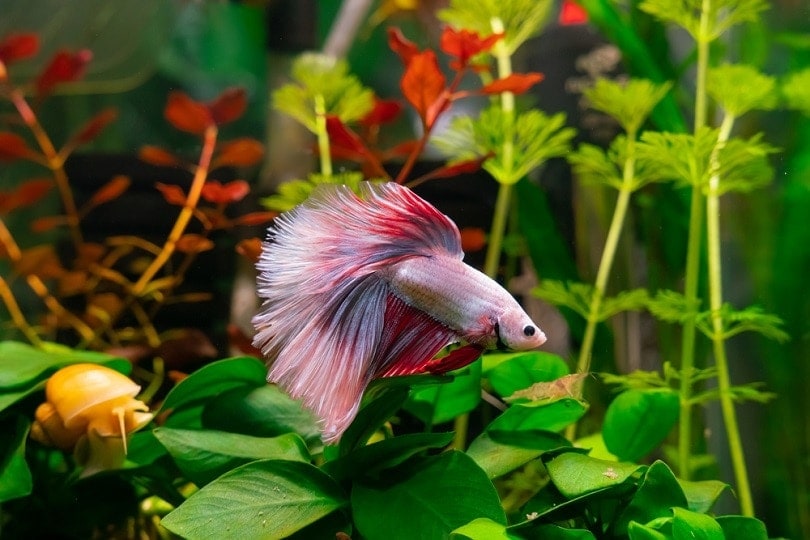
4. Lower Water Level
You’ll want to keep the water high enough to continue to provide the appropriate amount of filtration but low enough that your betta won’t exhaust itself when catching a breath. As a rule of thumb, if your betta is resting about half of the time, you can keep the water level at about 8 inches but if your fish is napping most of the time, keep it at about 5 inches.
5. Consider Using Aquarium Salt
Be very careful with this one. Aquarium salt can work very well for fish that are sick as well as help prevent infections and illnesses. You can add 1 teaspoon for every 5 gallons of water if your betta is old. If your betta has an infection, you can add 1 tablespoon for every 5 gallons. You should dissolve the salt in another container of water, which can then be gently added to your tank.
Note: Please be warned that aquarium salt is very detrimental to almost all live freshwater plants, if your tank is planted, you should not use aquarium salt in the tank.
6. More Frequent Water Changes
Because your older betta has a more compromised immune system, it’s a good idea to keep the nitrates, nitrites, and ammonia down to the lowest levels. Ammonia and Nitrites should always be at 0 ppm, while Nitrates shouldn’t exceed 20 ppm for a senior betta.
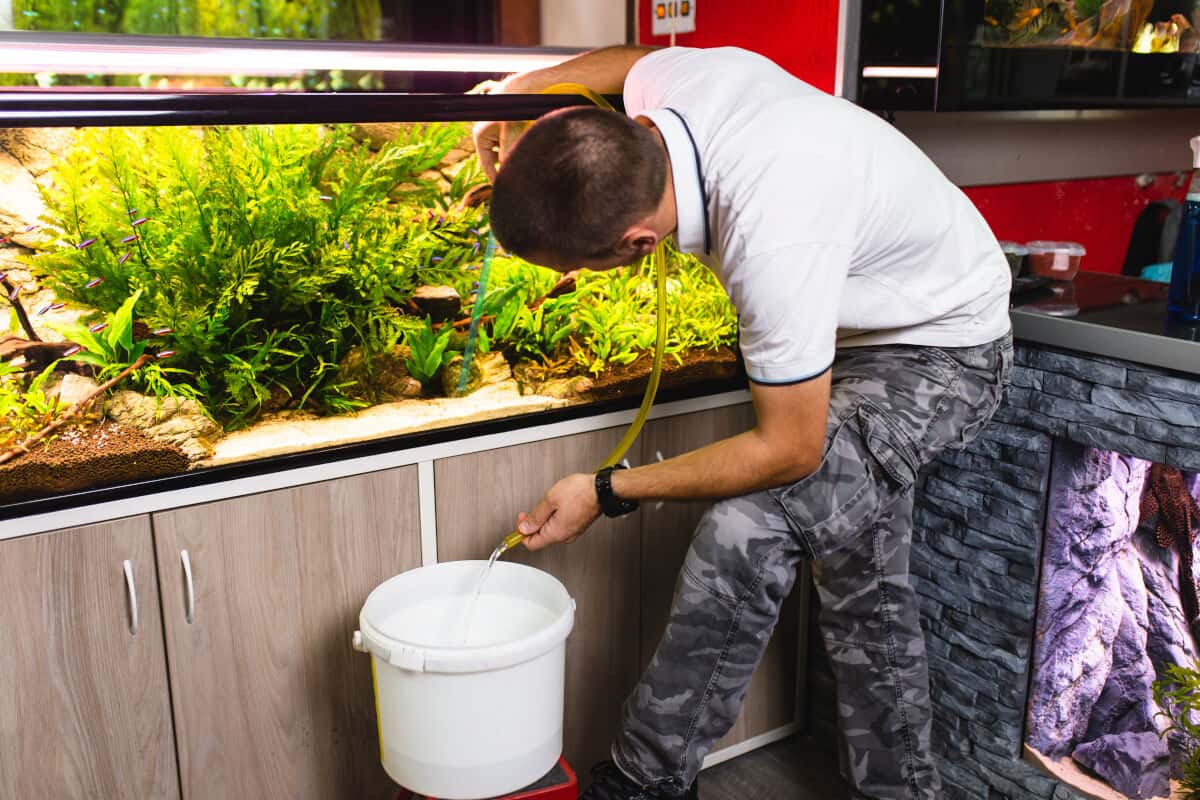
7. Talk to Your Vet About Medication
If your Betta does contract an infection or disease and you’re nervous about using aquarium salt, you can look at using medication. It’s also a good idea to have your Betta checked by an exotic veterinarian every 6 months during their senior years, even when they’re old. Take several pictures or video recordings of your Betta’s aquarium to show your veterinarian as a reference. Your vet can offer you suggestions for modifications required for their setup if required.
Final Thoughts
If your betta is old, you should commend yourself on taking such good care of your fish and that he is passing away from natural causes. Regardless of how you lose a pet, it’s heartbreaking, so make your betta as comfortable as possible in their last days and enjoy the time you have left.
See Also: Why Did my Betta Fish Die? (11 Common Reasons)
Featured Image Credit: ivabalk, Pixabay


